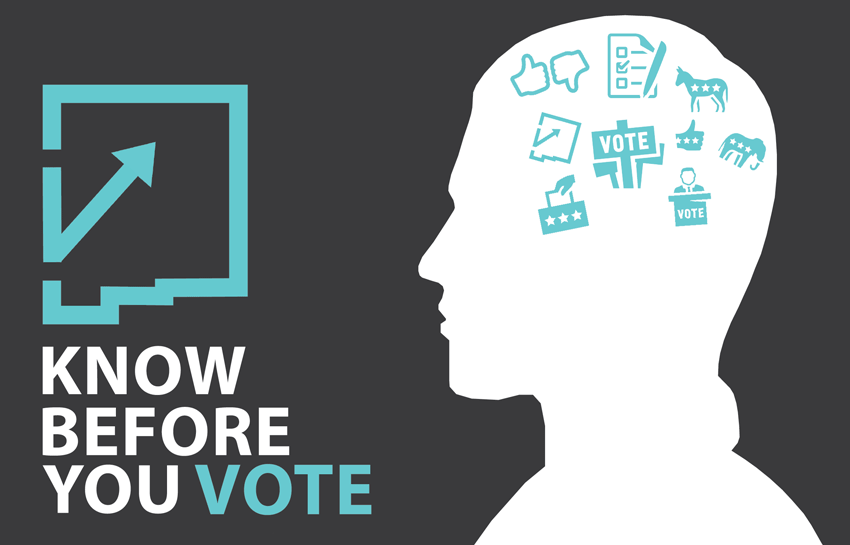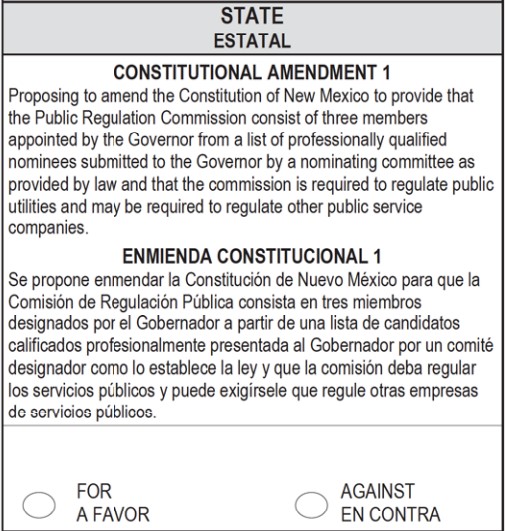In addition to candidate races and bond issues, the 2020 General Election ballot contains two proposed constitutional amendments that voters will decide. The first and most important of the two amendments is whether or not to reform the NM PRC from a 5 member elected body to a 3 member appointed one. NMBC has long been a supporter of moving the PRC to an appointed commission instead of an elected body.
The NM Public Regulation Commission (PRC), in its current form, is one of the worst decisions made by the state legislature in 1999. Why? Because it is an elected body with power checked only by the NM Supreme Court. New Mexico has experienced significant problems over the years including Commissioners convicted of felonies and serving time in jail. While this may occur with an appointed body, it’s much less likely and would be more isolated than New Mexico has experienced with this commission.
The current system of electing PRC commissioners does not work in the best interest of New Mexico!
Many people are frustrated with the Governor’s unchecked power on emergency health orders and we get it. That was another horrible decision by our legislature that needs to be corrected, but this Constitutional Amendment gives us an opportunity to correct at least some of the issues with the PRC and it DOES NOT give the governor an open opportunity to appoint his/her friends!
The process provides for a nonpartisan commission to select candidates based on established qualifications which is similar to how judges are selected. The Governor can only appoint from this qualified list, appointees must be confirmed by the state senate and no more than two of three appointees can be from the Governor’s party.
In the U.S., there are 39 similar regulatory bodies that are Governor appointed, two that appoint by the legislature and 10 that are elected at large. New Mexico is the only state that elects commissioners by district, which often causes commissioners to be swayed by constituents rather than perform their constitutionally defined duties to balance the interests of ratepayers, shareholders and the public as a whole.
It’s interesting to note that when this bill passed the legislature, it won significant bipartisan support in both chambers. The Senate passed it 36-5 (4 Democrats and 1 Republican voting against) and the House 59-8 (6 Democrats and 2 Republicans voting against).
The most important thing you can do is VOTE. Early voting is open around the state through Saturday, 10/31/20. Election Day is Tuesday, 11/3/20.
To provide voters with the information they need to make the best decision, NMBC has provided links below to op-eds from knowledgeable officials with experience in the PRC’s structure and operation who can provide insight into the constitutional amendment.


